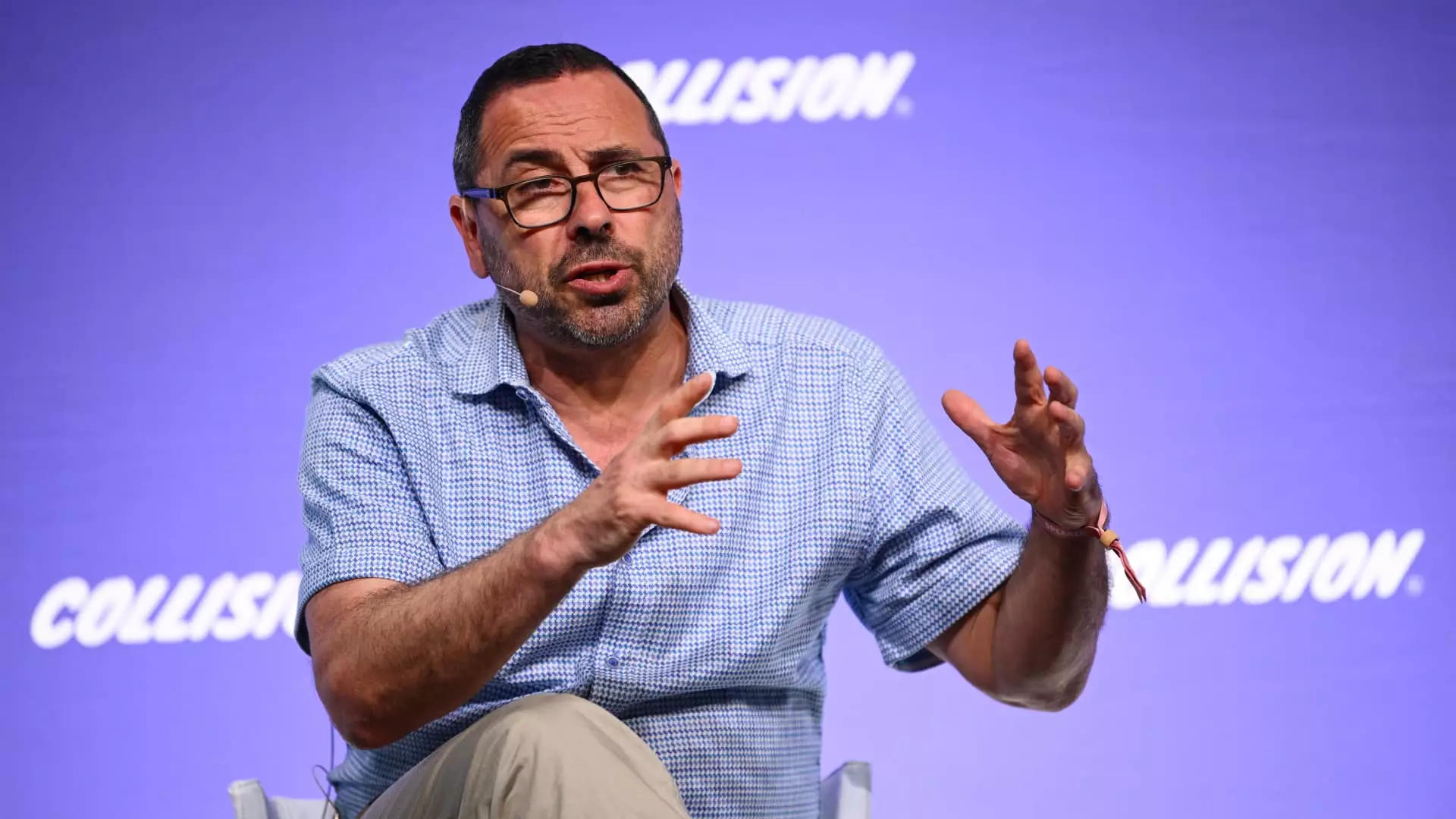The landscape surrounding artificial intelligence (AI) technology has seen unprecedented growth, with major companies like Nvidia soaring to impressive market valuations. Cerebras, an AI chipmaker based in Sunnyvale, California, is making headlines as it seeks to be one of the first significant venture-backed tech companies in the United States to go public since mid-2023. However, beneath the surface of this ambitious goal lies a complex web of challenges and concerns that could impact the company’s potential for success.
Founded in 2016, Cerebras made waves in the tech sector with its groundbreaking processor announced in 2019. The company positions itself as a competitor to Nvidia, asserting that its chips are superior in terms of speed and efficiency for training expansive language models. Substantial growth figures reflect Cerebras’ recent success; its sales skyrocketed from $78.7 million in 2023 to an impressive $136.4 million in the first half of 2024. This exponential growth is emboldened by a remarkable $1.43 billion worth of contracts and agreements, signaling a bright future.
Investors are likely to take a keen interest in Cerebras, especially given the hunger for stakes in companies that focus on AI technology and infrastructure. The sheer size of the contracts could suggest strong revenue streams, and this positive trajectory is further amplified by the persistent demand for innovative AI solutions across industries including healthcare, pharmaceuticals, and biotechnology. Hence, the potential for onboarding new clients and creating a diversified customer base appears promising.
The Risks of Customer Concentration
However, despite these enticing figures and achievements, the looming specter of customer concentration presents a substantial risk. A staggering 87% of Cerebras’ revenue for the first half of the year stemmed from a single client, G42, a Middle Eastern firm with significant backing from tech giant Microsoft. Such a high dependency on one customer raises alarm bells for potential investors, signaling vulnerability if that relationship sours or if G42 opts for alternative solutions.
The company’s plans for growth hinge heavily on pursuing broader opportunities in related sectors, but the lack of a diversified customer portfolio is a glaring issue. The emphasis on expanding into new markets comes as Cerebras seeks to mitigate risks and enhance stability, yet, without tangible engagement signs from other clients listed in its prospectus, skepticism remains about its ability to balance its revenue structure.
Adding to the complexity of Cerebras’ situation is the heightened scrutiny surrounding foreign investment in U.S. companies. G42’s firm positioning as both a customer and an investor raises national security concerns, igniting the necessity for CFIUS (Committee on Foreign Investment in the United States) clearance for the Middle Eastern firm to increase its stake in Cerebras. Previous partnerships and historical ties between G42 and Chinese companies lead to additional worries, as U.S. lawmakers have expressed uneasiness about national security implications.
With the specter of regulatory delays looming, there are discussions about potentially postponing the IPO. Recent reports suggest that this review could defer Cerebras’ plans to go public, necessitating careful navigation of the regulatory landscape to move forward. The intersection of business ambition and national interest creates a challenging environment for Cerebras and calls into question the company’s preparedness for these potential hurdles.
Awe-Inspiring Technology Underpins a Fragile Foundation
While Cerebras may tout technological superiority with its WSE-3 chip—claimed to be the fastest AI processor worldwide—its financial profile does not boast favorable figures. Despite impressive technological capabilities, the company is still grappling with considerable operational losses, reporting a net loss of nearly $51 million in the second quarter. Although near-break-even excluding stock-based compensation shows a flicker of hope, the underlying profitability concerns make investors wary.
Furthermore, the absence of involvement from major investment banks like Goldman Sachs and Morgan Stanley could set off alarm bells. Historically, these institutions have dominated IPO underwriting in the tech arena, serving as endorsers of strength and credibility. Cerebras is instead represented by Citigroup and Barclays, which, while reputable, do not enjoy the same stature in the realm of tech IPOs.
Cerebras has undoubtedly positioned itself at the intersection of innovation and high-stakes market opportunity. The potential IPO reflects both great promise and considerable uncertainty. While the explosion of interest in AI technology creates catalytic conditions, the company must address pressing challenges such as customer concentration, regulatory scrutiny, and the need for diversified revenue streams. Investors remain optimistic yet cautious, acknowledging that navigating these obstacles will be essential for Cerebras to establish itself as a leader in a sector marked by fierce competition and rapid evolution. The ambitious path ahead requires decisive strategic actions to fortify its foundation and sustain growth in this dynamic landscape.

